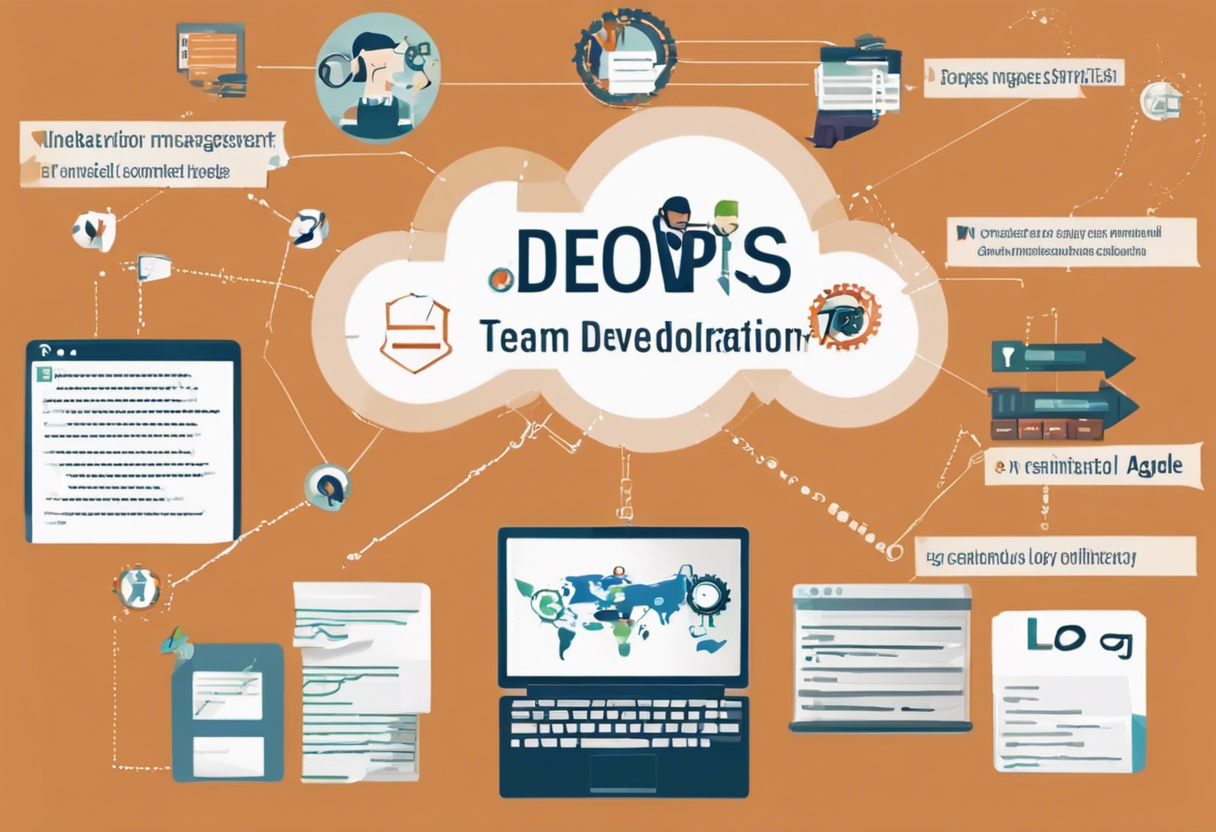9 essential tools for DevOps teams

9 Essential Tools for DevOps Teams: Streamlining Collaboration and Efficiency
In the fast-paced world of software development, DevOps teams play a critical role in ensuring the smooth operation of applications and services. By bridging the gap between development and operations, DevOps teams facilitate collaboration, improve efficiency, and enhance the overall quality of deliverables. To achieve these goals, DevOps teams rely on a range of essential tools that streamline workflows, enhance communication, and simplify complex processes. In this article, we'll explore nine essential tools that every DevOps team should consider.
Version Control Systems (VCS)
The first essential tool for DevOps teams is a Version Control System (VCS). A VCS helps teams manage changes to their codebase over time. It allows developers to track changes, collaborate on code, and maintain different versions of their software. The most popular VCS tools are Git and SVN. Git is the most widely used VCS, and for good reason. It provides a distributed architecture, which means that every developer working on the project has a local copy of the entire project history, making it easier to collaborate and track changes.
Continuous Integration (CI) Tools
Continuous Integration (CI) tools are another essential component of the DevOps toolkit. CI tools automate the build, test, and deployment process, ensuring that code changes are integrated and validated regularly. Jenkins, Travis CI, and CircleCI are popular CI tools that enable teams to automate their pipeline, ensuring faster and more reliable deployments. For instance, Jenkins is an open-source tool that supports a wide range of plugins, making it a highly customizable and versatile CI solution.
Continuous Monitoring and Feedback Tools
Continuous monitoring and feedback tools are critical for DevOps teams, as they provide real-time insights into the performance and health of their applications. These tools help teams identify issues early on, ensuring prompt resolution and minimizing downtime. Tools like Nagios, Prometheus, and New Relic provide real-time monitoring, analytics, and feedback, enabling teams to optimize their applications and improve user experience.
Agile Project Management Tools
Agile project management tools are essential for DevOps teams, as they facilitate collaboration, planning, and tracking. These tools help teams manage their workflow, prioritize tasks, and allocate resources effectively. Jira, Trello, and Asana are popular agile project management tools that provide a centralized platform for teams to plan, track, and deliver their projects. For instance, Jira is a robust tool that offers advanced project planning, issue tracking, and workflow automation features.
Containerization Tools
Containerization tools have revolutionized the way DevOps teams deploy and manage applications. These tools enable teams to package their application code, dependencies, and configurations into a single container, making it easier to deploy and manage applications across different environments. Docker is the most popular containerization tool, providing a lightweight and portable way to deploy applications.
Infrastructure as Code (IaC) Tools
Infrastructure as Code (IaC) tools are critical for DevOps teams, as they enable teams to manage and provision infrastructure resources using code. IaC tools like Terraform, Ansible, and CloudFormation provide a declarative way to define infrastructure resources, ensuring consistency and repeatability across different environments. For instance, Terraform is an open-source IaC tool that supports multiple cloud providers, making it an excellent choice for teams working with multi-cloud environments.
Log Management and Analysis Tools
Log management and analysis tools are essential for DevOps teams, as they provide insights into application performance, errors, and user behavior. These tools help teams identify issues, troubleshoot problems, and optimize their applications. Tools like ELK Stack, Splunk, and Sumo Logic provide log collection, analysis, and visualization features, enabling teams to gain insights and improve their applications.
Collaboration and Communication Tools
Collaboration and communication tools are critical for DevOps teams, as they facilitate collaboration, communication, and knowledge sharing. These tools provide a centralized platform for teams to share knowledge, track progress, and communicate effectively. Tools like Slack, Microsoft Teams, and Confluence provide real-time communication, collaboration, and documentation features, enabling teams to work efficiently and effectively.
Security and Compliance Tools
Security and compliance tools are essential for DevOps teams, as they ensure the security and integrity of their applications and data. These tools provide features like vulnerability scanning, access control, and compliance reporting, enabling teams to identify and remediate security risks. Tools like OWASP ZAP, Veracode, and Qualys provide comprehensive security and compliance features, helping teams ensure the security and integrity of their applications.
In concluion, these nine essential tools are critical for DevOps teams to deliver high-quality software products quickly and efficiently. By leveraging these tools, DevOps teams can automate their workflow, enhance collaboration, and improve the overall quality of their software applications. Whether it's version control, continuous integration, or security and compliance, each tool plays a vital role in ensuring the success of DevOps teams. By investing in these essential tools, DevOps teams can optimize their workflow, reduce costs, and improve customer satisfaction.
I hope you found this article helpfull, and it has given you a good understanding of the key tools that DevOps teams should use to streamlne their workflow and improve the quality of their software applications.